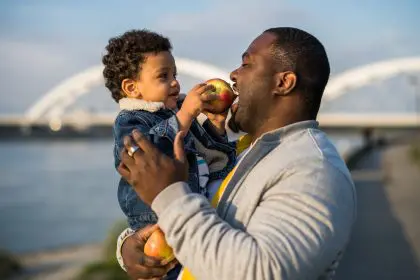Fatherhood has evolved dramatically over the past generation, with modern dads taking on roles that extend far beyond traditional breadwinning responsibilities. Today’s fathers are expected to be emotional supporters, active caregivers, household partners, and positive role models while navigating their own career demands and personal growth.
The pressure to excel in multiple areas can feel overwhelming, but research consistently shows that engaged fathers have profound impacts on their children’s development, academic success, and emotional well-being. The key lies in understanding which activities and behaviors create the most meaningful connections and lasting positive influence.
Modern parenting requires intentionality and balance, recognizing that quality often matters more than quantity when it comes to father-child interactions. The most successful dads today are those who embrace vulnerability, prioritize presence over perfection, and understand that their children need them to be emotionally available partners in their growth journey.
Listen without trying to fix everything immediately
The first transformative habit involves shifting from problem-solving mode to genuine listening when children share their experiences and concerns. Many fathers instinctively want to jump in with solutions, advice, or reassurance, but children often need validation and understanding before they’re ready for guidance.
Active listening means giving full attention during conversations, putting away devices, making eye contact, and reflecting back what children are expressing both verbally and emotionally. This approach builds trust and creates safe spaces where children feel comfortable sharing increasingly complex thoughts and feelings as they grow.
The practice of listening first also models emotional intelligence and communication skills that children will carry into their own relationships. When fathers demonstrate patience and genuine curiosity about their children’s inner worlds, they’re teaching valuable lessons about empathy and human connection.
Creating regular opportunities for unstructured conversation, whether during car rides, bedtime routines, or shared activities, establishes patterns of open communication that become increasingly valuable during adolescence and beyond.
Show vulnerability and admit mistakes openly
Modern fathers who model emotional honesty and accountability create environments where children learn that imperfection is human and growth comes through acknowledging errors. This doesn’t mean oversharing adult problems, but rather demonstrating that mistakes are learning opportunities rather than failures.
When fathers apologize sincerely for losing their temper, making poor decisions, or failing to follow through on promises, they teach children about personal responsibility and the importance of making amends. This vulnerability also removes the pressure children feel to be perfect themselves.
Sharing age-appropriate struggles and how you’re working through them helps children understand that challenges are normal parts of life. Whether discussing work stress, friendship difficulties, or personal growth goals, fathers who model resilience and problem-solving create frameworks their children can use.
The key is maintaining appropriate boundaries while being authentic about your humanity. Children need to see their fathers as strong and capable while also understanding that strength includes the ability to acknowledge limitations and seek help when needed.
Participate actively in household responsibilities
The third essential behavior involves taking genuine ownership of household tasks rather than simply helping when asked. Modern children benefit from seeing fathers as equal partners in maintaining family life, which creates more balanced expectations about relationships and responsibilities.
This participation should extend beyond traditionally masculine tasks to include cooking, cleaning, laundry, and organizing. When children see fathers naturally engaging in all aspects of home maintenance, they develop more egalitarian views about gender roles and partnership dynamics.
Active participation also reduces stress on partners, creating more harmonious household environments that benefit everyone. Children thrive in homes where both parents share responsibilities and support each other’s efforts to maintain family stability and comfort.
The modeling aspect cannot be overstated. Children who grow up seeing fathers actively engaged in all household responsibilities are more likely to become partners who contribute equitably to their own future relationships and family responsibilities.
Create individual bonding time with each child
The fourth crucial habit involves establishing regular one-on-one time with each child, tailored to their individual interests and personalities. This individual attention helps children feel valued for who they are as unique individuals rather than just members of the family unit.
These bonding experiences don’t need to be elaborate or expensive. They can include shared hobbies, special breakfast dates, bedtime stories, homework help, or simple walks around the neighborhood. The consistency and individual focus matter more than the specific activities chosen.
Individual time also allows fathers to better understand each child’s developing personality, learning style, and emotional needs. This knowledge becomes invaluable for providing appropriate support, encouragement, and guidance as children face different challenges and opportunities.
Regular individual bonding creates positive associations and memories that children carry throughout their lives. These experiences often become the foundation for adult relationships between fathers and their grown children, representing times when they felt truly seen and valued.
Express emotions freely and appropriately
Modern fathers who express their full range of emotions help children develop emotional intelligence and feel permission to experience and express their own feelings. This includes showing joy, excitement, sadness, frustration, and love in healthy, appropriate ways.
Emotional expression doesn’t mean losing control or burdening children with adult emotions, but rather demonstrating that feelings are normal and can be managed constructively. When fathers cry during movies, celebrate achievements enthusiastically, or express disappointment about setbacks, they normalize emotional experiences.
This emotional availability also creates opportunities for deeper connections during both positive and challenging moments. Children learn to trust fathers with their own emotional experiences when they see consistent emotional authenticity and appropriate responses.
The long-term benefits include children who are more comfortable with their own emotions, better equipped to handle stress and disappointment, and more capable of forming emotionally intimate relationships throughout their lives.
Prioritize physical affection and touch
The sixth essential behavior involves maintaining appropriate physical affection as children grow, recognizing that touch remains important for bonding and emotional security even as children develop independence. This includes hugs, high-fives, shoulder squeezes, and other forms of caring physical connection.
Many fathers reduce physical affection as children age, particularly with sons, due to cultural messages about masculinity and independence. However, research shows that children of all ages benefit from appropriate physical affection from their fathers, which contributes to emotional security and positive self-image.
Physical affection should be respectful of children’s boundaries and preferences, allowing them to initiate or decline physical contact while maintaining consistent availability for comfort and connection. Some children are naturally more physically affectionate, while others prefer different forms of connection.
The key is reading individual children’s needs and responding appropriately while maintaining consistent warmth and availability. Physical affection from fathers contributes to children’s ability to form healthy relationships and maintain appropriate boundaries in their own interactions.
Engage with their interests without judgment
The seventh transformative habit involves genuinely engaging with children’s interests, hobbies, and passions, even when they differ significantly from your own preferences or experiences. This means learning about video games, music, sports, books, or activities that capture your children’s attention and enthusiasm.
Authentic engagement requires moving beyond polite questions to actually participating, learning, and showing genuine curiosity about what makes these interests appealing to your children. This might mean playing video games together, attending concerts, learning new sports, or reading books in genres you wouldn’t normally choose.
This engagement demonstrates respect for children’s developing identities and helps fathers stay connected as children’s interests evolve and change. It also creates shared experiences and common ground for ongoing conversations and bonding opportunities.
The approach works best when fathers maintain genuine curiosity rather than trying to redirect children toward activities they prefer. Children can sense authentic interest versus obligatory participation, and respond much more positively to genuine engagement with their chosen interests.
Model healthy relationships and conflict resolution
Modern fathers have opportunities to demonstrate healthy relationship dynamics through their interactions with partners, friends, family members, and community members. Children learn about relationships primarily through observation, making paternal modeling incredibly influential.
This includes showing respect, kindness, and consideration in daily interactions, handling disagreements constructively, and demonstrating how to maintain relationships through challenges and changes. Children need to see how healthy adults navigate conflicts, make compromises, and repair relationships after difficulties.
The modeling extends to how fathers handle their own friendships and social connections, showing children the importance of maintaining relationships outside the immediate family and investing in community connections. These examples help children understand the value of diverse relationships and social skills.
When conflicts arise within the family, fathers who demonstrate calm communication, genuine listening, and fair problem-solving teach children valuable life skills they’ll use in their own relationships throughout their lives.
Support their independence while staying connected
The ninth essential behavior involves finding the balance between encouraging children’s growing independence while maintaining strong emotional connections and appropriate guidance. This means gradually increasing freedoms and responsibilities while remaining available for support and advice.
Supporting independence includes allowing children to make age-appropriate decisions, experience natural consequences of their choices, and develop problem-solving skills without constant intervention. This can be challenging for protective fathers who want to prevent their children from experiencing difficulties or failures.
The key is maintaining open communication about expectations, boundaries, and available support while allowing children space to grow and learn. This approach builds confidence and competence while preserving trust and connection between fathers and children.
Successful independence support requires adjusting approaches as children develop, recognizing that the balance between guidance and freedom shifts continuously as children demonstrate increased maturity and capability in different areas of their lives.
Invest in personal growth and self-care
The final crucial habit involves fathers taking care of their own physical, emotional, and mental health while pursuing personal growth and interests. Children benefit enormously from seeing fathers who prioritize their own well-being and continue developing as individuals.
This includes maintaining friendships, pursuing hobbies, exercising regularly, managing stress effectively, and seeking help when needed for mental health or relationship challenges. Fathers who model self-care teach children that personal well-being is important and sustainable.
Personal growth also means continuing to learn, whether through formal education, reading, skill development, or exploring new interests. Children who see fathers as lifelong learners develop similar attitudes toward growth and curiosity that serve them throughout their lives.
The modeling aspect extends to showing children how adults handle stress, disappointment, and change while maintaining resilience and optimism. Fathers who take care of themselves are better equipped to provide consistent, patient, and supportive parenting over the long term.
Creating lasting impact through intentional fathering
Modern fatherhood requires intentionality, flexibility, and commitment to growth both as individuals and as parents. The most impactful fathers are those who recognize that their influence extends far beyond providing and protecting to include emotional support, relationship modeling, and personal development guidance.
These ten areas of focus work together to create comprehensive approaches to engaged fathering that meet children’s evolving needs while maintaining strong family bonds. The key is consistency and authenticity rather than perfection, recognizing that children benefit most from fathers who are genuinely engaged and continuously working to improve.
The investment in these behaviors pays dividends not only in improved relationships with children but also in personal satisfaction and family harmony. Fathers who embrace these approaches often find that their own lives become richer and more meaningful through deeper connections with their children.
Success in modern fatherhood comes through understanding that children need fathers who are emotionally available, consistently present, and committed to supporting their development as unique individuals while maintaining strong family values and connections that last throughout their lives.
















